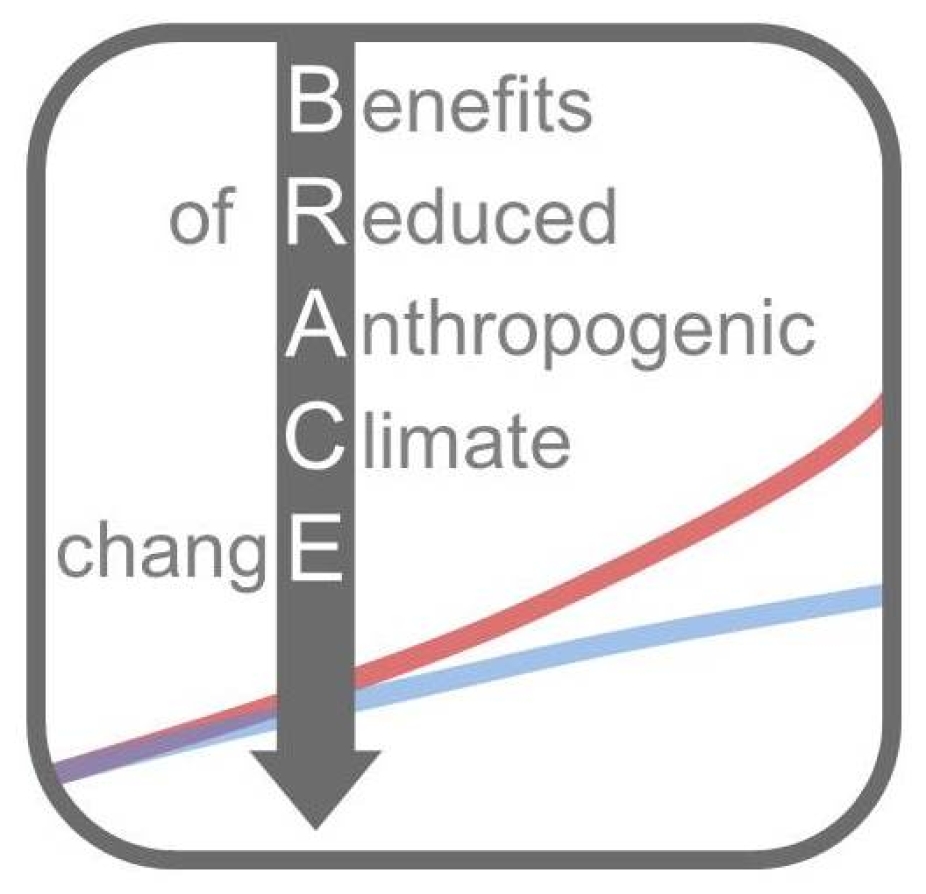Benefits of Reduced Anthropogenic Climate change (BRACE)

Understanding and quantifying the difference in climate-related risks between alternative levels of future climate change are critical to informing climate change policies, such as mitigation and adaptation. The project on the Benefits of Reduced Anthropogenic Climate changE (BRACE), the first study undertaken by NCAR’s Climate and Human Systems Project, explored global and regional impacts of climate change that could be avoided in a future scenario with lower emissions due to moderate emissions reduction efforts relative to a future scenario with higher emissions. BRACE studies also evaluated the benefits of mitigation for two different societal futures.
The project involved 23 individual analyses from more than 50 authors from NCAR and from 18 partner institutions. Results of this study were summarized in a special issue of Climatic Change. Data output and model projections are also available for some papers. View the BRACE highlights brochure or the synthesis paper to learn more about the BRACE project and its results, or download the BRACE media kit.
BRACE Results
The project found substantial benefits to mitigation for extreme event outcomes under the moderate emissions scenario when compared to the high emissions scenario. These benefits were statistically significant in some regions as early as the 2020s and widespread by mid-century. Moderate to substantial benefits to mitigation were found for health-related outcomes under the moderate emissions scenario when compared to the high emissions scenario, and socioeconomic drivers were found to strongly influence results for some of these outcomes.
Mitigation was found to have a modest benefit on agriculture under the moderate emissions scenario when compared to the high emissions scenario, but effects varied substantially by region, crop types, and assumptions about the effects of CO2 fertilization. Crop yield and price outcomes were influenced more strongly by societal change than by climate change. Results showed no statistically distinguishable differences in tropical cyclone activity and damage between the moderate emissions scenario and the high emissions scenario, so no firm conclusion about the benefits of mitigation on tropical cyclones could be drawn.